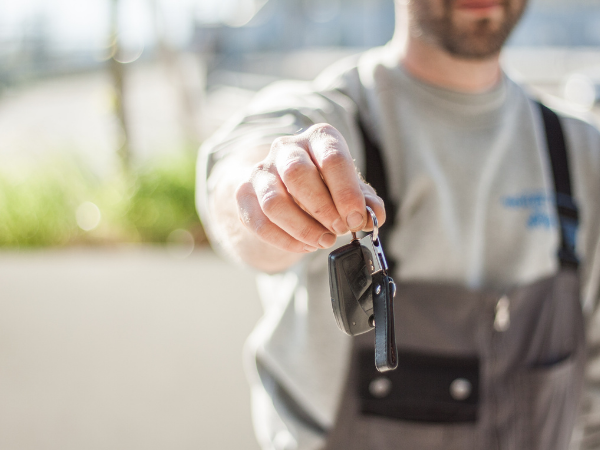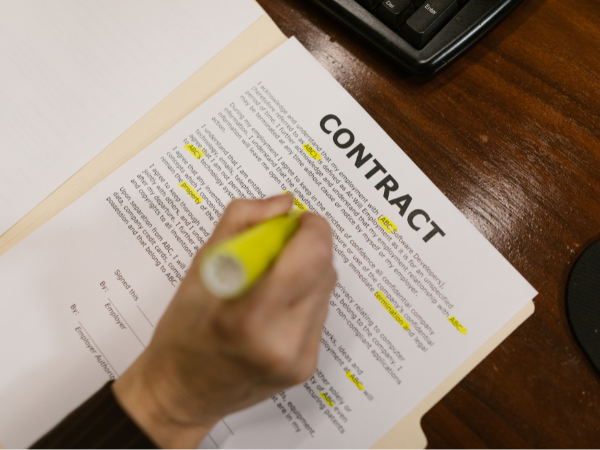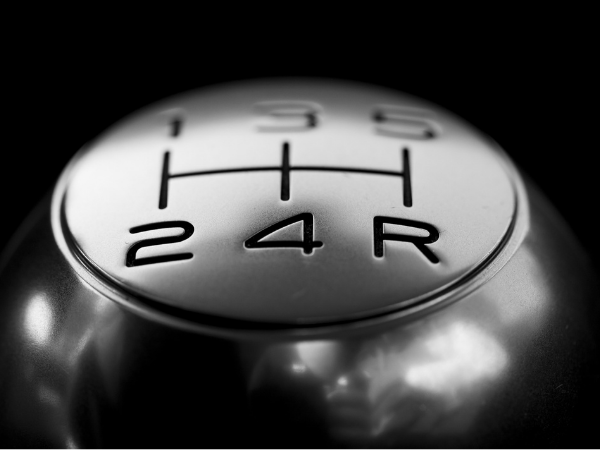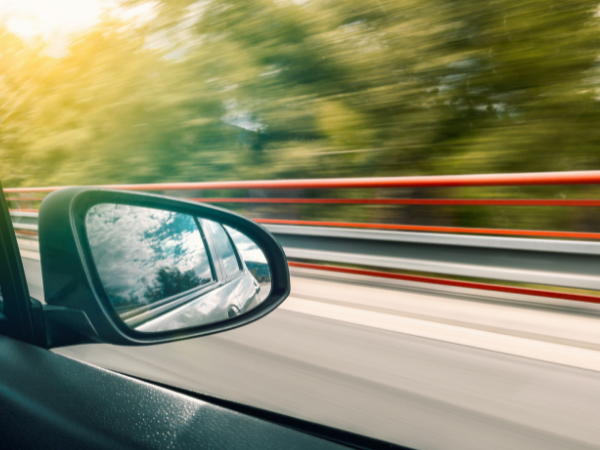Lease vs. Buy: Why either of them can be a good choice
If you were looking for a new car, you might have weighed your lease vs. buy options. People often choose the former, but financial advisors usually discourage it. Yet, the option that suits you will depend on several factors.
Before anything else, we need to talk about how car leasing works. Then, we’ll compare the benefits and risks of a car lease vs. buy. More importantly, we’ll explain how to pick between them and offer a few alternatives.
Purchasing a car is becoming more and more expensive as time passes. Fortunately, we have more ways of obtaining vehicles, such as auto leases and loans. Selecting the best option can save you so much hassle and money.
How does leasing a car work?

Car leasing is like renting a car for a certain duration. You don’t pay the whole purchase price, though. Instead, you pay the depreciation value along with fees and an interest rate.
The car’s value decreases upon exiting the lot. As it does, the difference between its current value and its expected value increases. This is what’s called depreciation.
According to Dave Ramsey, the price is cut by 9-11% after one minute outside! As we said, you’ll have to deal with other lease terms like:
- Initial payment – This is the amount you need to pay at the start of the lease.
- Lease’s duration – It often lasts around two to four years
- Current price – It’s how much the car, truck, SUV costs right now.
- Expected price – You will also have to pay an amount at the end of the lease, depending on the automobile’s current price.
- Rent charge – It’s also called the “money factor.” This works similarly to an auto loan’s interest rate.
- Termination fees – You must pay these if you return the vehicle, ending the lease early.
- Mileage limit – It’s how much distance your car may travel. This typically spans 10,000 to 15,000 miles every year.
- Per-mile fee – The lease will charge this if you exceed the mileage limit.
- Definitions for maintenance repairs – They describe the corresponding payment for excess wear and tear. Also, it will provide details regarding the damages that the maintenance repair terms cover.
- Penalties for late payments – Like an auto loan, a car lease will charge an extra amount if you miss a payment.
Why do people lease cars?
It’s easy to see why people may think a loan and a lease are the same. After all, you don’t own the car when you’re leasing and financing. Yet, there are reasons why people prefer the former.
It lets you pay for the depreciation, not the current price. This means buyers can acquire a new car at more affordable prices. You won’t have to deal with a huge loan payment initially.
Many financial advisors discourage car leases. For example, Dave Ramsey makes it clear that he prefers the former when comparing lease vs. buy. Yet, there are good reasons for leasing:
- Get the latest models – People miss out on the latest car tech because of the steep auto loans and monthly costs. Leasing allows you to drive the newest models at more affordable prices.
- Easier trade-ins – Some people employ a “rent-to-own” approach with car leases. After the lease term ends, they can easily return the vehicle to the dealership. Let’s say you took out a car loan instead. You’ll have to worry about selling it even after the loan term ends.
- Good for business owners – If you own a company, you may acquire the lease through your company. In turn, business owners may get tax advantages that reduce lease payments. Please check your local government for more information.
Why should I buy a car instead?
When comparing a car lease vs. buy option, you should see the pros and cons. Financial advisors like Dave Ramsey still have valid points when they prefer car buying.
First, let’s discuss the disadvantages of car leasing. These potential issues may overshadow its initial benefits. We’ve listed some of them below:
- You don’t own the vehicle – When you lease a car, you’ll have to follow its terms and conditions. This means you can’t modify it for any reason.
- Restricted use – Your mileage is typically capped at 10,000 to 12,000 miles annually. That means you can’t drive it for a trip or other recreational purposes. If you drive often, you may have to conserve this limit.
- Larger long-term expenses – We said that you wouldn’t deal with a huge payment “initially.” As the car’s market value increases, the depreciation goes up too. As a result, your lease might cost more in the long run.
- Complicated terms – It can be difficult to navigate the fine print for lease agreements. If you don’t want that kind of hassle, you might want to buy a car instead.
Now let’s look at the benefits of purchasing an automobile. You’ll notice that they’re the opposite of the car lease disadvantages. Read below for more info:
- You own the vehicle – Purchase a car, and you can do whatever you want with it. You could change the paint job or replace the internal parts with better ones. What’s more, you can drive as much as you want!
- Cash for your next ride – Owning a car is similar to having a home. You build equity that can be a down payment for your next vehicle. In turn, your current automobile can save you money for your new one.
- Fewer expenses – Unlike a car lease, you only deal with repair and maintenance costs if you own your vehicle.
How do I choose between lease vs. buy?
Picking between purchasing a car or getting a lease for it depends on your needs. Leasing means paying a car’s depreciation over a few years so you can drive it temporarily.
It lets you get the newest models without spending too much. Consequently, a car lease makes sense if you’ll replace it after a few years. If you’re a car enthusiast, this might be for you.
A lease is also a good choice if you’re a business owner. If you get one using your company, you may deal with reduced monthly payments. This will depend on your state, though.
On the other hand, buying a car gives more freedom and fewer payments. However, you’ll have to submit a larger amount compared to a lease payment.
Afterward, you can do whatever you want with the car. This could be a better choice if you don’t mind driving a used vehicle. Those often require a lower initial payment.
With proper maintenance, you could prolong your car’s lifespan. With modifications, that old car could outshine the new ones! It might even outlast the usual lease term of around 2-4 years.
Related Articles
Final thoughts
It’s great that you read this article for guidance. Still, you need to hear plenty of advice when weighing lease vs. buy. Check other sources for additional insight.
Also, check your options. See the terms and conditions from several dealerships. That way, you can lease or buy with the best terms and conditions.
The better option isn’t so cut and dried now. Even used cars are getting expensive due to the pandemic. This is why you need to find the best deal for your next vehicle!
Learn more about leasing vs. buying a car
Why is leasing a car a bad idea?
A lease agreement severely limits what you can do with your car. This means you can’t modify the vehicle or drive it too often. Also, you’ll probably deal with larger payments in the long run.
Is it ever a good idea to lease a car?
A car lease is good if you want to drive the latest model temporarily. What’s more, business owners may prefer leasing because of their tax advantages.
Does a car lease affect credit scores?
Like other forms of debt, a car lease can make or break your credit. Pay on time, and you could boost your score. Pay late, and your score drops.
Sponsored Advertising Content:
Advertorial or Sponsorship User published Content does not represent the views of the Company or any individual associated with the Company, and we do not control this Content. In no event shall you represent or suggest, directly or indirectly, the Company's endorsement of user published Content.
The company does not vouch for the accuracy or credibility of any user published Content on our Website and does not take any responsibility or assume any liability for any actions you may take as a result of reading user published Content on our Website.
Through your use of the Website and Services, you may be exposed to Content that you may find offensive, objectionable, harmful, inaccurate, or deceptive.
By using our Website, you assume all associated risks.This Website contains hyperlinks to other websites controlled by third parties. These links are provided solely as a convenience to you and do not imply endorsement by the Company of, or any affiliation with, or endorsement by, the owner of the linked website.
Company is not responsible for the contents or use of any linked website, or any consequence of making the link.
This content is provided by New Start Advantage LLC through a licensed media partnership with Inquirer.net. Inquirer.net does not endorse or verify partner content. All information is for educational purposes only and does not constitute financial advice. Offers and terms may change without notice.




